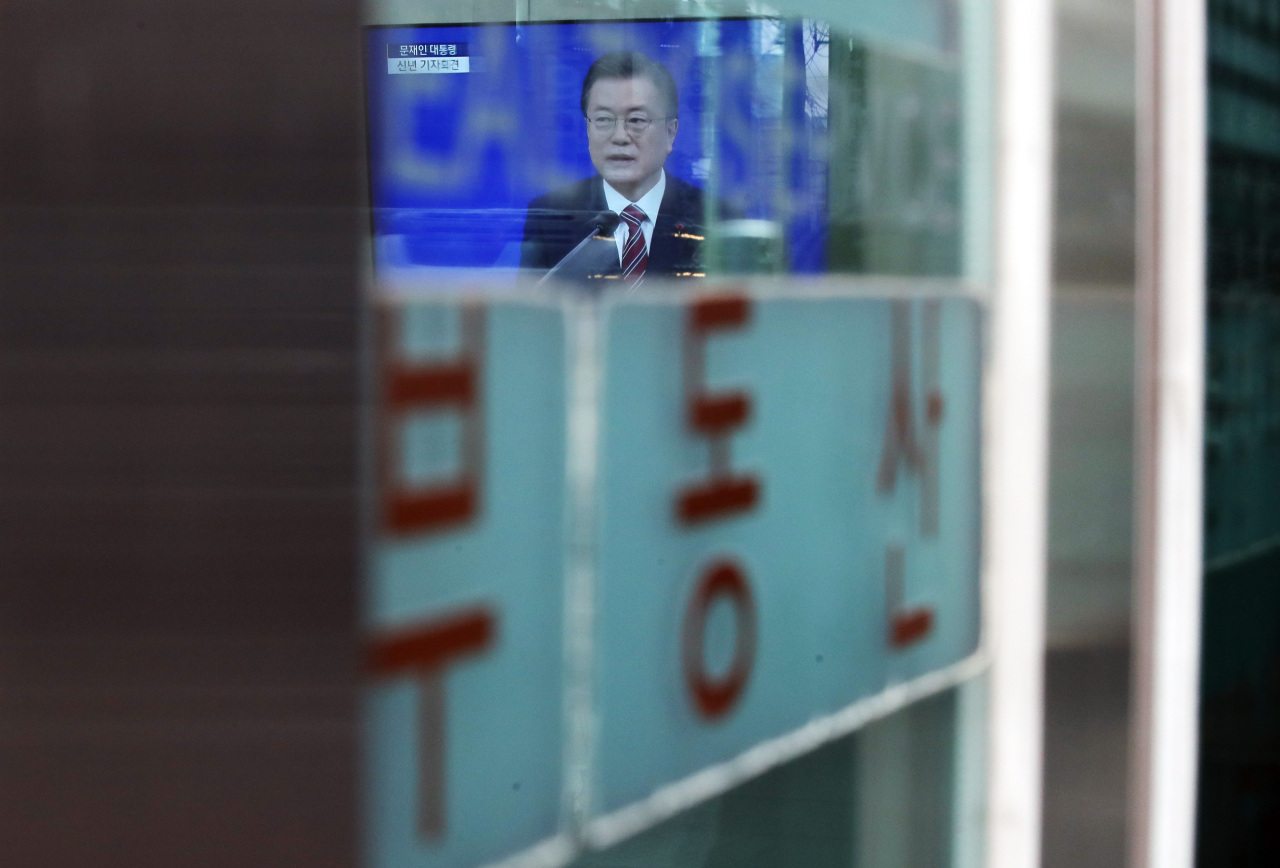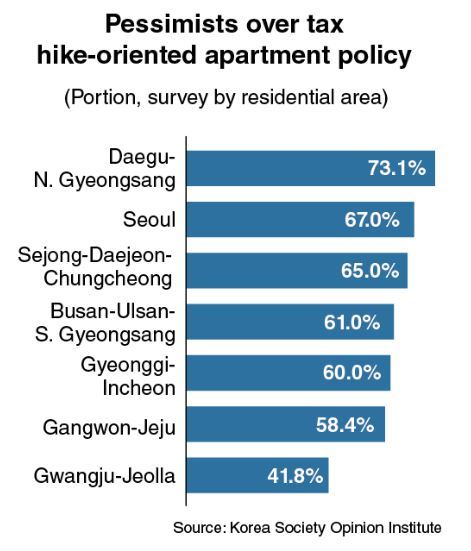[News Focus] 3 in 5 Koreans question real estate tax hikes
67% of Seoulites skeptical about taxation-focused apartment policy: poll
By Kim Yon-sePublished : Feb. 7, 2021 - 15:29

SEJONG -- The Moon Jae-in administration had been active in raising property taxes, claiming that the aggravated tax burden for multiple home-owners would eventually curb apartment prices.
But housing prices in Seoul and some other major cities have continued to climb to record-highs. The government still maintains the policy of higher taxation on real estate, while more and more people have become skeptical about it in terms of efficacy.
A recent survey suggests a dominant portion of people’s distrust in the government’s “anti-speculation” policy.
According to a poll by the Korea Society Opinion Institute, 61.4 percent of people surveyed responded that they “disagree with” the argument that the hikes in comprehensive real estate holding tax and capital gains tax have brought, or would bring, market stabilization.
In the KSOI poll, conducted on 1,000 people nationwide and was publicized on Jan. 26, only 35.8 percent of them said they agreed on the policy direction.

By region, the portion of those doubting the policy’s effectiveness was highest in the Daegu-North Gyeongsang Province area as 73.1 percent of the respondents from the area expressed disapproval.
Seoul was the second with the disapproval percentage of 67 percent, followed by Sejong-Daejeon-Chungcheong provinces with 65 percent, Busan-Ulsan-South Gyeongsang Province with 61 percent and Gyeonggi Province-Incheon with 60 percent.
The portion of pessimists was 58.4 percent in Gangwon Province-Jeju Province and 41.8 percent in Gwangju-Jeolla provinces.
By generation, the disapproval portion was the highest among those in their 60s or over at 64.9 percent, the second-highest among those in their 50s at 63.8 percent.
While the figure the third-highest among those in their 30s at 63.7 percent, the pessimist portion was the lowest among those in their 40s among the entire generation at 50 percent.
By job type, the figure was the highest among housewives with 67.1 percent, followed by the jobless with 62.8 percent, the self-employed with 60.1 percent, white collars with 59.8 percent and blue collars with 59.2 percent.
Though the disapproval percentage was the lowest among college students, at 58.4 percent, this was still much larger than those who backed the policy, at 32.5 percent.
By political identity, 74.9 percent of those who identified themselves as conservatives said the policy of the higher tax-oriented real estate policy would not be -- or has not been -- effective, 62.4 percent of those as centrists and 46.3 percent of those as liberals.
By residential type, the figure was also highest at 64 percent among tenants under “jeonse,” Korea’s unique long-term rent system through lump-sum deposits.
A poll by Gallup Korea, released on Jan. 30, showed that the largest portion (24 percent) of those, who expressed disapproval of President Moon Jae-in, picked real estate policy as the main reason for not supporting him.
As a noteworthy point, only 1 percent of those, who responded that they were supporting President Moon, picked the real estate policy as the main factor for their approval.
Meanwhile, many people have expressed fury over unfairness in the market, pointing out that the enhanced real estate regulations have further weakened the apartment purchase capacity or opportunity among middle-income households.
In Seoul, mortgages are totally banned for apartment units priced 1.5 billion won ($1.33 million) and over. While mortgages -- for up to 40 percent of the property value -- are allowed for apartments priced 900 million won or under, it is not easy to find the price-level housing for an 84-square-meter unit (a popular size in Korea) in the wake of skyrocketing prices in the capital.
Under the regulation, people with sufficient cash could be able to dominate sales of newly built apartments, as many subscription-lottery winners have no choice but to abandon full payments.
Amid the growing pessimism over the efficacy of regulation-based policy and supply shortage, the Land Ministry said on Feb. 4 that the government would provide 320,000 housing units in Seoul by 2025.
By Kim Yon-se (kys@heraldcorp.com)


















![[Today’s K-pop] Treasure to publish magazine for debut anniversary](http://res.heraldm.com/phpwas/restmb_idxmake.php?idx=642&simg=/content/image/2024/07/26/20240726050551_0.jpg&u=)